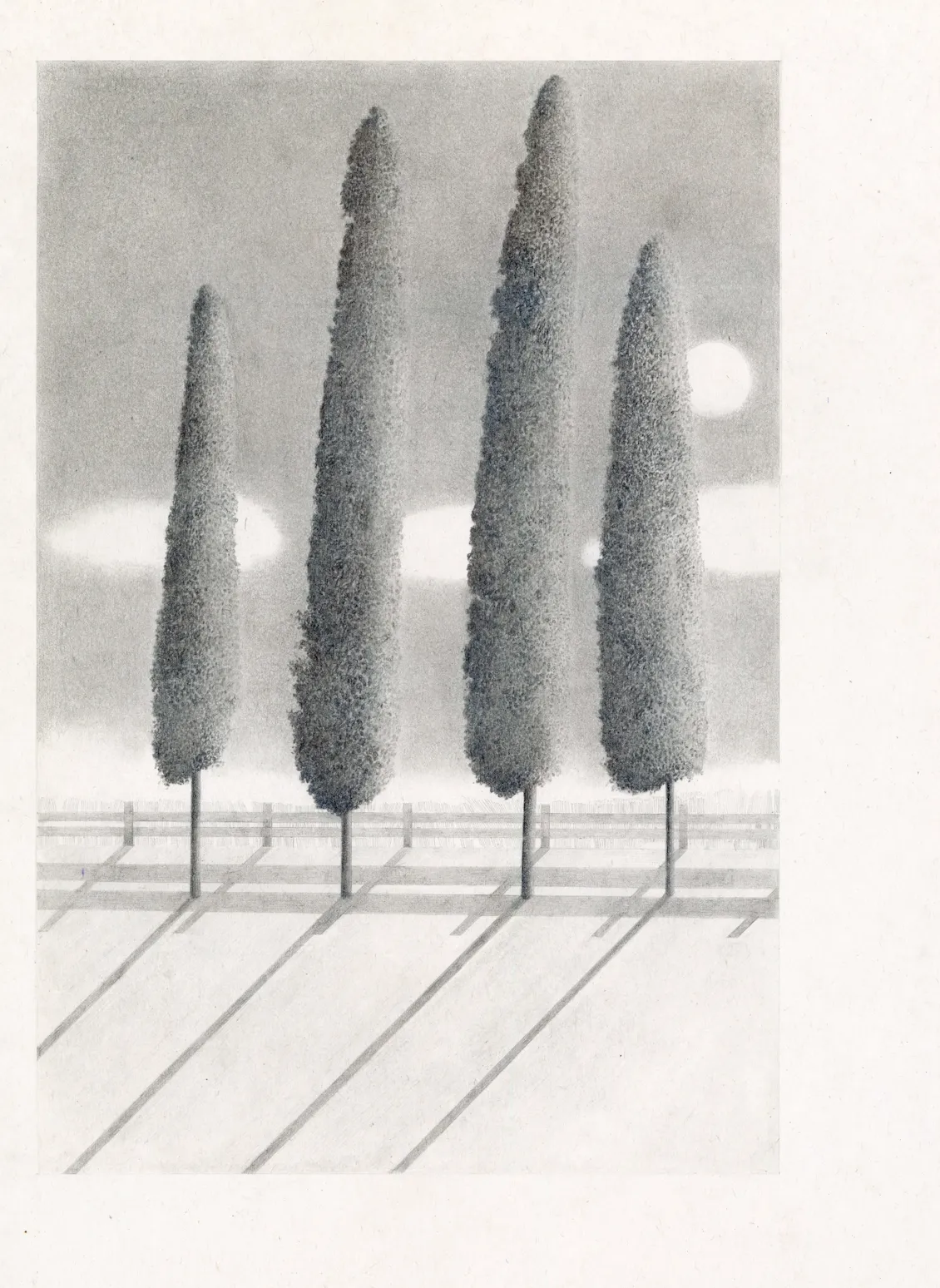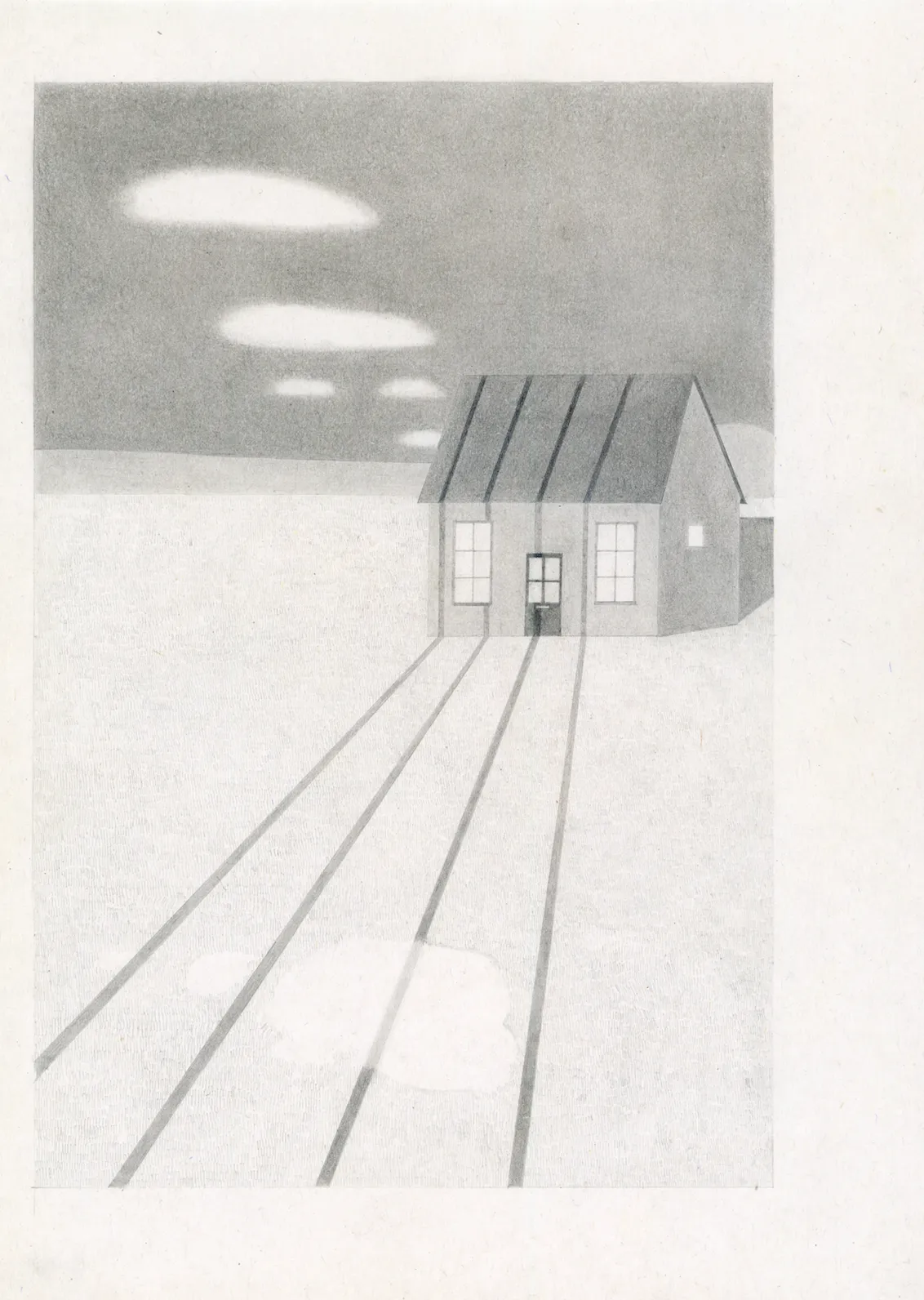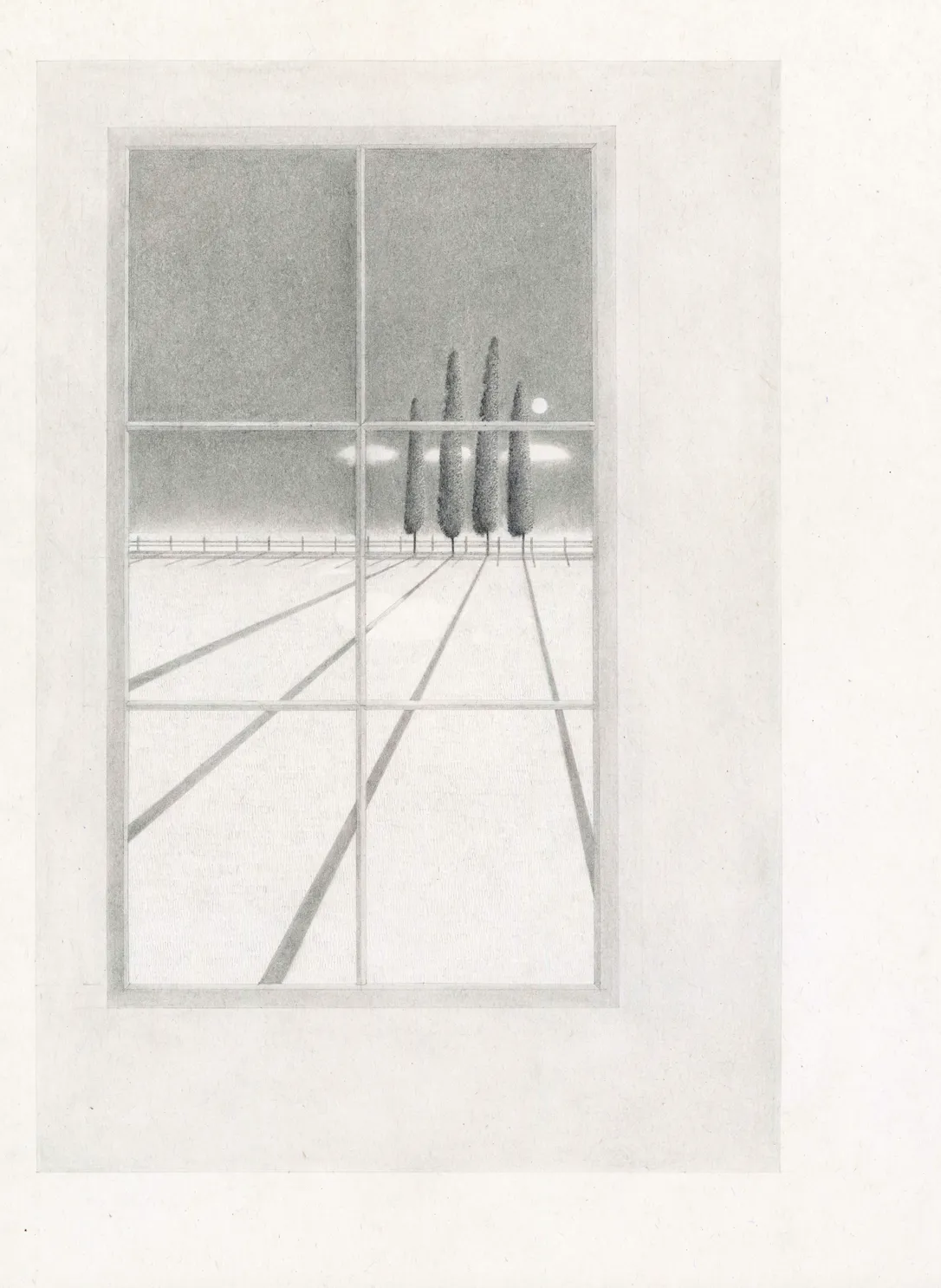The dry fields sat over waterlogged earth, that, following the rain, that day, those days ago was not so waterlogged anymore. The wet had retreated about 15 inches below the topsoil, and the dirt just looked a grey brown where it could be seen between the patches of turf and lined crop rows of oats one field over. A long way off there are spires and farms and buildings and you cannot see them very well. I am keeping this future apart from closer measures. “Very well.”
There is a distant ocean by a damp town in which I sit and tell you that:
me/i:
“I see you all now, all of you before me. A caucus of birds, I am staring at crows.”
Crow 1:
“Why am I a bird?”
me/i:
“you are not one bird, you are a bunch”
The bunch:
“I will tell you of our land then.”
Me:
“yes please do.”
The murder:
“From above, the field is wet, it is damp- its puddles are stagnant. I see you by the window and this doesn’t mean much now but that doesn’t mean it won’t mean something eventually.”
Me:
“There is life in stagnant pools.”
You:
“yes i believe we have been playing in one”
me/i:
“keep that away from me”
You:
“What?”
I:
“that notion”
They understand the vacuum as it is not very large. The future or distance is there but it is not firm or very important, it is, however, substantial enough to take some effort for one to ignore.
Each blade of grass begins to bend to one of the four winds.
After this I saw four angels standing at the four corners of the earth, holding back the four winds of the earth, that no wind might blow on the earth or sea or against any tree.
-Revelation 7:1. (John the Apostle p.1165)
This is the earth and each poplar tree is situated at one of its four corners. The four corners sit in a straight line approximately three metres apart from each other. They break the wind up into five stream lines and if you were to stand at certain spots in the field you wouldn’t feel it blow. You would feel the white hot calm of windbreak.
When the very idea of territory becomes relative, nuances appear in the legitimacy of territorial possession.
-Édouard Glissant. (Glissant p.15)
I once said,* I have made great effort so far as not to quote myself * that the territory of the liberal man has shrunk to the size of his own front lawn.
You look at me blankly now and I realise I have not said something profound. I reiterate the same thought but with a dry tongue:
It’s awfully strange that when it came down to dealing with the matter at hand, we all found ourselves standing here, in this field, standing before the four corners of this earth.
Now one of you looks at me and says:
“How can I mean nothing by what I say?”
(I look toward another one of you, and you look back and say:)
Crow:
“Reality doesn’t have to bend to human perception.”
(crow 2 looks to crow 1 with a severity)
Crow 2:
“What a pointless thing to say”
(we walk back inside the house and sit at my table)
Now I pull my sleeves up so that I can feel the wood of the desk under my elbows. I look out the window as you do the same. Now we have good grip, our olecranal skin holds fast against the varnish and we arm wrestle over my territory. There is a light, loose draft in the air, it fiddles at my wrist, my nose bleeds, a spittle comes out from between your lips and in the wet we lose balance and our limbs pile up. The light in the fixture casts a dull glow over this pile. The window pane condenses as the liquid evaporates and we both recognise that you have won.
I hand over the deeds: a small red book, embossed with gold lettering, spelling out ‘THE AXIOLOGY OF MY TERRITORY’.
And it is full of bland aphorisms.
I am watched as I make my way. I am overcome. I step out of the house onto the front lawn. I walk towards windbreak and climb over the fence which is the field boundary. The aeolian man nibbles at it. He’s wearing a careful look on his face, the kind that tries to tell you that the physical is sometimes to be understood as a reflection of an inner landscape, being expressed as the reaction to an outer environment. He runs a finger along the stripped wood to indicate that it delineates a boundary. A boundary serving to keep something in or something out, human or non-human. I incline my head at this insight. I walk onwards through crop rows until I reach round the back of the house where I see you, moving around behind a small window. I throw a stone at the pane and you look out, then come out - via the back door- and come to sit with me on the wet lawn. The watcher is tired and he closes his eyes.
Into my heart an air that kills
From yon far country blows:
What are those blue remembered hills,
What spires, what farms are those?
That is the land of lost content,
I see it shining plain,
The happy highways where I went
And cannot come again.
- A. E Houseman.
Works Cited
Bataille, Georges. The Solar Anus. 1931. Holy Books, https://www.holybooks.com/wp-content/uploads/The-Solar-Anus.pdf.
Glissant, Édouard. Poetics of relation. Translated by Betsy Wing, University of Michigan Press, 1997.
John the Apostle. The New Testament, Revelation 7:1. ESV.
Houseman, A.E. Housman, 1859-1936. A Shropshire Lad. Mount Vernon, N.Y. :Peter Pauper Press, 1942.
windbreak
Graphite on Newsprint

The wet field
Graphite on Newsprint

home
Graphite on Newsprint
